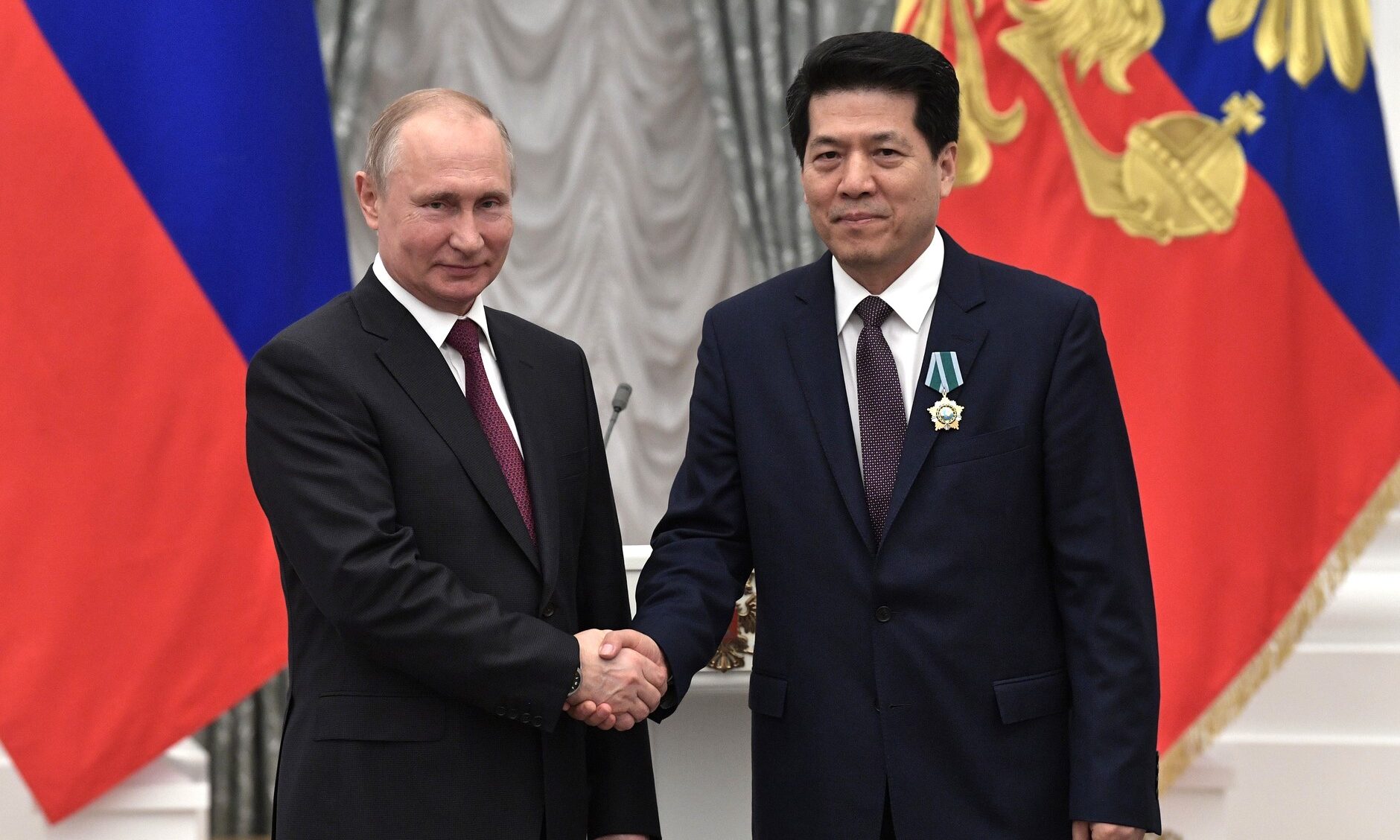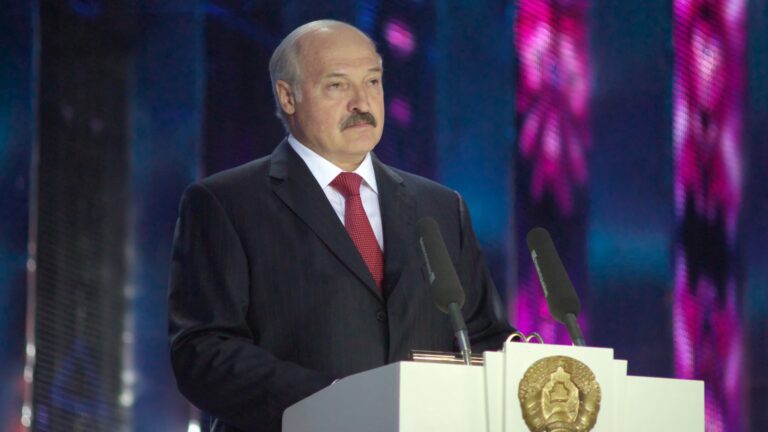
China has conducted a second round of shuttle diplomacy to “seek political settlement” to what it calls the “Ukrainian crisis.” Special Representative of the Chinese Government on Eurasian Affairs Li Hui visited Russia, the EU headquarters in Brussels and also Poland, Ukraine, Germany, and France, trying to gauge the outlook of a negotiated settlement – one that would favor Russia.
Mediator with a Dubious Position
After a prolonged diplomatic pause, Beijing resumed its peacekeeping activities, this time more actively promoting its mediation role. According to the Chinese Ministry of Foreign Affairs’ statement, during his European trip, “Li Hui introduced China’s efforts to promote peace talks on the Ukraine crisis over the past two years and the relevant situation of the second round of shuttle diplomacy, stressing that a prolonged and complicated crisis in Ukraine is not in the interests of all parties, and China is willing to work with the international community to cool down the situation and restore peace at an early date.”
Following talks in Moscow, the Chinese side noted that “Russian Deputy Foreign Minister Mikhail Galuzin agreed that the crisis in Ukraine ultimately should be resolved through negotiations and praised China’s unique and constructive role in this regard.” Apparently, with this announcement, Beijing sought to underscore Russia’s trust in its mediation services.
China insists on its objective and impartial position regarding the conflict and its good relations with both Russia and Ukraine, which provides it with a unique opportunity to engage with both sides of the war. However, China’s echoing of Russian narratives regarding the war and the noticeable strengthening of bilateral relations with Russia since the invasion cast doubt on its impartiality. Over the two years of the war, China has not condemned Russia’s actions and has not demonstrated a genuine willingness to join Western efforts to end the conflict. Instead, Beijing became a significant supporter of Moscow, providing diplomatic, economic, financial, and non-lethal assistance, as well as dual-use elements used in the military-industrial complex.
Rift in Positions
The visit of the Chinese special representative to Brussels and European capitals highlighted deep divergences between the two sides on the issue of the Russian-Ukrainian war. At the EU headquarters and in the EU countries capitals, unwavering support for Ukraine was reaffirmed, emphasizing that Russia’s war poses an existential threat to the security of the community, and therefore China’s position on the war inevitably affects their bilateral relations. In response to Beijing’s calls to cease supplying Western weapons to Ukraine, China was reminded that supporting victims of aggression is not only a right but also a duty of all members of the international community, including permanent members of the UN Security Council, and that appeals to “legitimate security concerns” with which Russia justifies its aggression are excuses for aggression.
The EU made it clear that it expects China to engage more actively with Ukraine and hopes that China will urge Russia to withdraw all military forces from the entire Ukrainian territory within its internationally recognized borders. Additionally, in the EU capitals, Chinese representative was once again reminded that the European side awaits real steps from Beijing regarding the return of abducted Ukrainian children, ensuring nuclear safety, including at the Zaporizhzhia Nuclear Power Plant, and on other specific issues.
European counterparts have also called on China not to provide political, economic, and military support to Moscow and to take effective measures to restrain significant volumes of dual-use goods and advanced technologies exported from China to the Russian military-industrial complex. Recently, the EU added three Chinese companies suspected of having military ties with Russia to the 13th package of sanctions. This move has caused outrage from the Chinese government. In Brussels, the Chinese special representative emphasized that “China firmly opposes the inclusion by the EU of Chinese companies in the latest list of sanctions against Russia, urging the EU to unconditionally revoke the list of Chinese companies and return to the right path of dialogue and consultations with China.”
In Kyiv, the opportunity was taken to inform the Chinese representative about the situation on the front lines, Russian losses, mass rocket attacks on civilian infrastructure, violations of civil rights, war crimes committed by Russia, and the functioning of the “grain corridor.” For the Ukrainian authorities, this was a chance to convey their position as the Chinese government deliberately refrains from close bilateral contacts with Ukraine – even as it denies the fact.
The Ukrainian side also showed the Chinese delegation the fragments of a North Korean missile used by the Russian military and other elements of weapons transferred to Russia and used for attacks on the territory of Ukraine (in violation of UN Security Council resolutions). Kyiv also drew attention to Russia’s use of components from third countries for the production of weapons, including strike UAVs “Shahed,” reconnaissance drones, missiles, navigation systems, etc. Considering that China is the main supplier of critically important components for Russian drones (67 percent of deliveries) and a source of re-export of dual-use goods, the Ukrainian side wants to draw the attention of the Chinese authorities to the evidence of the use of these elements by the Russian army. However, the Ukrainian efforts have been shrugged off by the Chinese side.
Playing against Ukrainian Terms
One of the crucial points for Kyiv is involving Beijing in the Ukrainian Peace Formula (10-point initiative and diplomatic platform proposed by the Ukrainian president to achieve a just and stable peace). Volodymyr Zelenskyy has repeatedly emphasized that he “would very much like China to be involved in the Peace Formula and participate in the summit of leaders, considering its ‘significant role in the world’.” During the Munich Security Conference on February 17, Ukrainian Foreign Minister Dmytro Kuleba met with his Chinese counterpart, Wang Yi, and invited Beijing to participate in the upcoming Global Peace Summit at the level of leaders. China found itself in a situation where it was difficult to come up with a reason for refusal or to ignore this invitation altogether: not only Ukrainian diplomats but also Europeans were involved in the initiative. For example, Swiss Foreign Minister Ignazio Cassis, whose country will host the Global Peace Summit, personally delivered the invitation to the Chinese side during a visit to Beijing.
Zelenskyy repeatedly noted that the format of the upcoming Global Peace Summit does not include an invitation for representatives of Russia. “We do not see how it is possible to invite people who block, destroy and kill everything. We want to get a result – a just peace for Ukraine. Therefore, first the civilized countries of the world will develop a detailed plan and have a result, and only then will they involve representatives of Russia – those who are ready for a just peace,” the Ukrainian President said.
However, close relations with Russia and strategic coordination on global issues between the two countries keep China from accepting a peace agreement on Ukrainian terms. During a meeting with the Chinese special representative in Moscow, it was stated by the Russian Foreign Ministry that “any political-diplomatic settlement is impossible without Russia’s participation and consideration of its security issues, and the ultimatum demands advanced by Kyiv and the West, along with the associated ‘dialogue’ formats, only harm the prospects for settlement and cannot serve as its basis.”
Echoing the Russian position, China’s Foreign Minister Wang Yi, during a meeting with journalists at the NPC and CPPCC sessions, emphasized that “China supports the timely holding of an internationally recognized peace conference that is acceptable to both Russia and Ukraine, ensuring the equal participation of all parties and fair discussions on all peace plans.”
China’s Endgame
China’s renewed diplomatic activity was not accidental – it was aimed at understanding the disposition in European capitals and Kyiv regarding readiness to make concessions to Moscow and agree to negotiations. From China’s perspective, Russia currently holds a more advantageous strategic position in the conflict. Chinese experts and media speak about Russia seizing the initiative on the battlefield, the resilience of the Russian economy, and Putin’s strong position in power – all of which create favorable conditions for China to incline Ukraine and the West to be more compliant.
Over the last year, China has tried to become the voice of the Global South calling for peace. Now, it aims to exploit the war fatigue and internal turmoil in European countries, the delay in military aid to Ukraine from the US and the uncertainty about American support in the future. Beijing knows that the possible return of Donald Trump to the White House casts doubt not only on further support for Ukraine, but also on the US role in the defense of Europe. The ongoing discussions about “strategic autonomy” and the need to take European security into one’s own hands provide China with an opportunity to position itself as a mediator who can help achieve peace in Europe and, at the same time, strengthen its position in the future European security architecture, while the US may yield this role.
Thus, while the second round of shuttle diplomacy did not deliver any direct results, Beijing is hoping it will be in a better position to reap benefits should the situation on the battlefield and trends in Western support turn more favorable towards Russia (and, by extension, China) down the road.
Written by
Nataliya Butyrska
Nataliya Butyrska is an independent expert on East Asia. She is an author of more than 100 analytical articles and reports on the issues of international relations with a special focus on the Indo-Pacific region and Ukraine's relations with Asian countries.


